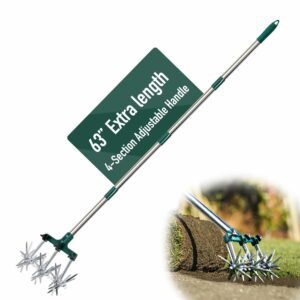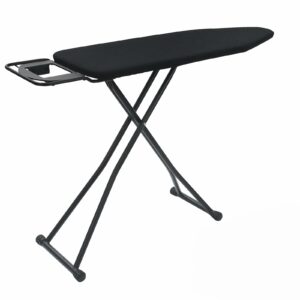📺 Do I Need a TV Licence in the UK? A Clear and Updated Guide for 2025
TV licensing in the UK can be confusing, especially in a world of streaming, catch-up, and mobile viewing. With more people cutting costs and switching to online platforms, many wonder: Do I still need a TV licence?
This guide will explain exactly when you need one, when you don’t, and how to legally avoid paying if it’s not required. We’ll also touch on how UK banks can help you track or budget for it.
📌 What Is a TV Licence and Why Does It Exist?
A TV licence is a legal requirement in the UK for anyone who watches or records live television broadcasts or uses BBC iPlayer, on any device.
The money funds the BBC, allowing it to operate ad-free and provide public service broadcasting. In 2025, the annual cost of a standard colour TV licence is £169.50.
📺 When Do You Need a TV Licence?
You need a licence if you do any of the following:
✅ Watch or record live TV
This applies to any channel, not just BBC — including ITV, Sky, Channel 4, or even foreign channels like CNN or Eurosport.
✅ Watch or stream BBC iPlayer
Even if you’re watching on-demand, BBC iPlayer access requires a licence.
✅ Use devices like:
-
TVs
-
Laptops
-
Tablets
-
Smartphones
-
Gaming consoles (like Xbox or PlayStation)
The device doesn’t matter — it’s what you watch and how.
🚫 When You Don’t Need a TV Licence
You do NOT need a licence if you:
-
Only watch non-BBC on-demand or catch-up (e.g. Netflix, Amazon Prime, Disney+)
-
Only stream YouTube, Twitch, or other online videos
-
Never watch or record live TV
❗ Be careful:
If you stream live TV through a third-party app (like ITVX Live or Channel 4 Live), it still counts as “live broadcast”.
🧾 What Happens If You Don’t Have a Licence?
TV Licensing conducts random checks and visits homes. If they believe you should have a licence but don’t, you could face:
-
A fine of up to £1,000
-
A criminal conviction
-
Court costs and victim surcharges
In reality, prosecutions are rare for those who genuinely don’t need one — but if you do need one and don’t pay, the penalties are real.
🧑🎓 Do Students Need a TV Licence?
Yes — if they watch live TV or use BBC iPlayer in their room. However:
-
If you’re covered by your parents’ licence and only watch on a device powered by batteries, you may not need a separate one.
-
If your device is plugged in, you likely need a separate licence.
More info is available from the TV Licensing website.
👨👩👧 Are There Discounts or Free TV Licences?
Yes — certain groups qualify for discounts or free licences:
🧓 Over-75s on Pension Credit
If you’re over 75 and receive Pension Credit, you get a free TV licence.
👁 Blind or Severely Sight-Impaired
You can get a 50% discount.
🏠 Care Home Residents
Licences are available at a reduced £7.50 per room in care homes.
You can apply for these discounts directly via TV Licensing Concession Info.
🧮 Can UK Banks Help With Licence Budgeting?
Yes — several UK banks offer tools to manage subscriptions like TV licences.
| Bank | Feature |
|---|---|
| Barclays | Subscription tracking helps spot recurring charges like TV Licence payments |
| Monzo | Bill Pots let you set aside money monthly to cover annual costs |
| Starling Bank | Spending insights categorise licences under utilities |
| Lloyds Bank | Helps with budgeting through the Money Manager tool |
You can also split the cost into monthly payments by setting up a Direct Debit, which many banks support easily.
🔁 Can You Get a Refund for Unused Months?
Yes — if you no longer need a licence (e.g., you move abroad, switch to streaming-only), you can request a pro-rata refund for any full unused months remaining.
Submit a refund form through TV Licensing Refunds.
🧠 Common TV Licence Myths (Busted)
❌ Myth: “You don’t need a licence if you only use a laptop.”
✅ Truth: The type of device doesn’t matter — it’s about how you watch.
❌ Myth: “You’re safe if you don’t give TV Licensing your name.”
✅ Truth: They can still investigate your address, regardless of registration.
❌ Myth: “You need a licence for Netflix or Disney+.”
✅ Truth: You don’t — as long as you don’t use iPlayer or watch live TV.
🏡 What If You Live in Shared Housing?
In shared accommodation:
-
If you all watch live TV in a common area, one licence covers the whole property.
-
If each tenant watches in their own room, separate licences may be required unless devices are battery-powered and covered by a parent’s licence.
📝 How to Tell TV Licensing You Don’t Need One
If you genuinely don’t watch live TV or BBC iPlayer, you can officially inform them by submitting a “No Licence Needed” declaration.
Do it online via TVL Declaration. You’ll stop getting warning letters and inspections (though they may still verify once every few years).
💷 What’s the Penalty for Watching Without a Licence?
As mentioned earlier, the maximum penalty is £1,000 + legal costs — but in practice, most cases result in a fine of £50–£200 if proven.
To avoid risk, if you need one — get one. If you don’t — legally opt out and keep proof of your status.
✅ Summary: Do You Need a TV Licence?
| Scenario | Licence Needed? |
|---|---|
| Watching live BBC/ITV/Channel 4 | ✅ Yes |
| Using BBC iPlayer | ✅ Yes |
| Watching Netflix/Disney+/YouTube (on demand) | ❌ No |
| Watching iPlayer catch-up | ✅ Yes |
| Using mobile-only for non-live streaming | ❌ No |
| Over 75 and on Pension Credit | 🚫 Free |
💬 Final Thoughts: Be Smart, Stay Legal
The TV licence isn’t always necessary — and with the growth of streaming, many households can legally go without it. But if you watch live TV or iPlayer, skipping payment can land you in hot water.
Know your rights, understand the rules, and if you’re eligible, claim any discounts. With the right tools — including bank budgeting apps and official checklists — you can stay compliant and in control.
 Swan SD6060N 1.5 litre Stainless Steel Fryer with Viewing Window, Non-Stick Coating for Easy Cleaning and Adjustable Thermostat with Indicator Light, Detachable Basket Handle, 900W, Silver
Swan SD6060N 1.5 litre Stainless Steel Fryer with Viewing Window, Non-Stick Coating for Easy Cleaning and Adjustable Thermostat with Indicator Light, Detachable Basket Handle, 900W, Silver  Sage - The Custom Loaf - Bread Maker, Brushed Stainless Steel
Sage - The Custom Loaf - Bread Maker, Brushed Stainless Steel  Russell Hobbs Kettle, retro red, 1.7 l, 2400 W, quick cooking function, water temperature display in retro design, filling level marking, optimised pouring spout, vintage 21670-70
Russell Hobbs Kettle, retro red, 1.7 l, 2400 W, quick cooking function, water temperature display in retro design, filling level marking, optimised pouring spout, vintage 21670-70  Sensio Home Personal Blender Smoothie Maker - BPA Free 1L Jar & 600ml Portable Sports Bottle, Electric Blender for Fruit, Vegetables, Protein Shakes, Crush Ice & Frozen Fruit, 2 Speed + Pulse 350W
Sensio Home Personal Blender Smoothie Maker - BPA Free 1L Jar & 600ml Portable Sports Bottle, Electric Blender for Fruit, Vegetables, Protein Shakes, Crush Ice & Frozen Fruit, 2 Speed + Pulse 350W  Russell Hobbs Honeycomb Electric 1.7L Cordless Kettle (Fast Boil 3KW, Grey premium plastic, matt & high gloss finish, Removable washable anti-scale filter, Push button lid, Perfect pour spout) 26053
Russell Hobbs Honeycomb Electric 1.7L Cordless Kettle (Fast Boil 3KW, Grey premium plastic, matt & high gloss finish, Removable washable anti-scale filter, Push button lid, Perfect pour spout) 26053  Rolling Kitchen Island Cart with Solid Wood Countertop Spice Rack and Wheels Portable Kitchen Cart (1 Piece)
Rolling Kitchen Island Cart with Solid Wood Countertop Spice Rack and Wheels Portable Kitchen Cart (1 Piece)  150FT Expandable Flexible Garden Hose with 7 Setting Professional Water Spray Nozzle
150FT Expandable Flexible Garden Hose with 7 Setting Professional Water Spray Nozzle  Swan SK14610FUS Nordic Cordless Jug Kettle with Fast Boil Technology, Overheat Protection, Soft Touch Handle, 1.7L, 3KW, Fuchsia Rose, Fusia
Swan SK14610FUS Nordic Cordless Jug Kettle with Fast Boil Technology, Overheat Protection, Soft Touch Handle, 1.7L, 3KW, Fuchsia Rose, Fusia  Salter EK3131 Espressimo Coffee Machine – 4-Shot Espresso Maker, Milk Frothing Wand, Includes 240 ml Glass Carafe, Barista Style Latte And Cappuccino, 5-Bar Pressure, Stainless Steel Filter, 870W
Salter EK3131 Espressimo Coffee Machine – 4-Shot Espresso Maker, Milk Frothing Wand, Includes 240 ml Glass Carafe, Barista Style Latte And Cappuccino, 5-Bar Pressure, Stainless Steel Filter, 870W  Revel CCM104 Wet and Dry Grinder, Plastic, White/Green
Revel CCM104 Wet and Dry Grinder, Plastic, White/Green  Rotary Cultivator Set, 25"-63" Adjustable Gardening Rotary Tiller and Hand-Held Garden Cultivator Tool with Steel Detachable Tines, Reseeding Grass or Soil Mixing
Rotary Cultivator Set, 25"-63" Adjustable Gardening Rotary Tiller and Hand-Held Garden Cultivator Tool with Steel Detachable Tines, Reseeding Grass or Soil Mixing  Rainberg 122 x 38cm Folding Ironing Board with Jumbo Iron Rest, Adjustable Height Up To 93cm, Foldable & Collapsible Ironing Table (Black)
Rainberg 122 x 38cm Folding Ironing Board with Jumbo Iron Rest, Adjustable Height Up To 93cm, Foldable & Collapsible Ironing Table (Black)